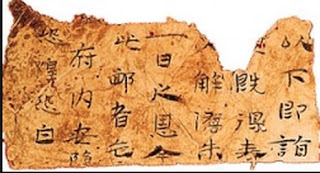"Hey Guys, My name is Tatum
Whistleblowers are government employees who reveal government wrongdoings, often at great personal risk. Their actions can expose lies, hold the powerful accountable, and sometimes spark global debates. But they also raise tough questions: Do they protect democracy, or do they endanger national security?
Today, I’ll focus on four whistleblowers—Mark Felt, also known as “Deep Throat,” Jack Teixeira, Daniel Ellsberg, and Edward Snowden—and explore what their actions meant and the consequences they faced.
Mark Felt, better known as “Deep Throat,” was the FBI’s second-in-command during the 1970s. He became a confidential source for journalists Bob Woodward and Carl Bernstein, leaking information about the Watergate scandal. This scandal revealed illegal activities tied to President Nixon’s re-election campaign, including a break-in at the Democratic National Committee headquarters and subsequent cover-ups. Felt’s leaks were crucial in uncovering the truth, leading to Nixon’s resignation in 1974. Felt stayed anonymous until 2005, when he revealed his identity. His actions remain controversial—some see him as a hero for exposing corruption, while others criticize him for betraying the FBI.
Following along in the same time period, Daniel Ellsberg is one of the most well-known whistleblowers in U.S. history. In 1971, as a military analyst, he leaked the Pentagon Papers—a classified study showing that the U.S. government had misled the public about the Vietnam War. Ellsberg believed the public deserved to know the truth. His actions sparked nationwide protests and led to a Supreme Court ruling that upheld press freedom. He was charged under the Espionage Act and faced up to 115 years in prison, but the charges were dropped due to government misconduct. Ellsberg is often celebrated as a pioneer in whistleblowing, with his case influencing future debates about government transparency.
In 2023, Jack Teixeira, a 21-year-old Air National Guard member, leaked classified U.S. military documents in a Discord chat for gamers. The documents included sensitive information about the Russia-Ukraine war, U.S. intelligence on allies, and military strategies. Unlike other whistleblowers, Teixeira wasn’t motivated by political or ethical concerns—he reportedly leaked the documents to impress his online friends. His actions raised serious concerns about how classified information is handled in the digital age. Teixeira was arrested and charged under the Espionage Act, showing how modern whistleblowing can be unintentional yet still have major consequences.
In 2013, Edward Snowden, a contractor for the NSA (National Security Agency), leaked thousands of classified documents exposing global surveillance programs. These programs collected data from billions of people worldwide, including phone calls, emails, and internet activity. Snowden argued that this level of surveillance violated privacy rights and democratic values. His leaks triggered global debates on privacy, cybersecurity, and government overreach, leading to some reforms like the USA Freedom Act. However, Snowden’s actions also caused diplomatic tension and security concerns. He sought asylum in Russia and remains there to avoid prosecution in the U.S. He stated, “I carefully evaluated each document I disclosed to ensure that each was legitimately in the public interest. There are all sorts of documents that would have made a big impact that I didn’t turn over because harming people wasn't my goal. Transparency was.”
Since I have started my presentation the NSA has gathered over 60 terabytes of data for review, that is over 10,000 two hour long movies.
Many whistleblowers act out of ethical duty, like Ellsberg and Snowden, while others, like Teixeira, may lack clear moral intentions.
Thank you"








